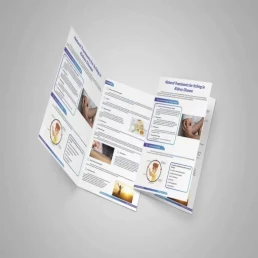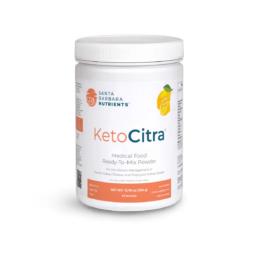High blood pressure, also known as hypertension, is a silent yet potent threat to millions worldwide. It’s a condition that often requires a multifaceted approach to manage effectively. “Holistic hypertension management” is not just a buzzword; it’s a comprehensive method that encompasses diet, lifestyle, and beyond. This guide explores how an integrative strategy can combat hypertension, taking into account the intricate roles of genetics and the gut microbiome.
By Majd Isreb, MD, FACP, FASN, IFMCP
Hypertension means the blood pressure is higher than normal. Blood pressure is how hard the blood pushes against the walls of the arteries, which are the tubes that carry blood away from the heart to the rest of the body.
It’s measured in millimeters of mercury (mmHg) and given as two numbers. The first (systolic) number is the pressure when the heart beats, and the second (diastolic) number is the pressure when the heart rests between beats.
Normal blood pressure is around 120/80 mmHg. It’s high if it’s 130/80 mmHg or more. Often, there are no clear symptoms, but high blood pressure can lead to serious health issues like heart disease and strokes.
All medical guidelines for the management of hypertension recommend starting with “lifestyle modifications.” However, the details of these modifications are often omitted. So, let’s discuss these in some detail.
Join us to end the kidney disease epidemic
The Genetic Perspective
Genetics can predispose individuals to hypertension, making some more susceptible than others. More than 100 genetic variants have been linked to essential hypertension. Yet no conclusive candidate gene have been found to date. There are, however, clear genetic disorders that can cause secondary forms of hypertension, such as Liddle syndrome and familial hyperaldosteronism.
Understanding one’s genetic makeup can guide personalized treatment plans. Although we can’t alter our genetics, recognizing the genetic component can inform a more tailored holistic hypertension management plan.
Dietary Changes for Hypertension
Diet is the cornerstone of managing high blood pressure. The DASH (Dietary Approaches to Stop Hypertension) diet and the Mediterranean diet are celebrated for their effectiveness in lowering blood pressure naturally. These diets are rich in fruits, vegetables, whole grains, and healthy fats like olive oil.
Reducing sodium intake is also crucial, as excess salt is a known contributor to elevated blood pressure. Foods rich in potassium, magnesium, and calcium have a harmonizing effect on blood pressure levels, making them vital components of holistic hypertension management.
Finally, regular consumption of cocoa and moderate red wine, as part of a balanced diet, may confer anti-hypertensive benefits. Including fiber-rich foods and flax seeds can improve blood pressure control. Omega-3 fatty acids from fish or supplements have been shown to lower blood pressure, as have inorganic nitrates found in leafy greens and beets.
Lifestyle Modifications
Lifestyle plays an equally important role in controlling hypertension. Both aerobic and resistance exercises have been found to improve blood pressure control. Regular physical activity, whether it’s brisk walking, cycling, or swimming, can significantly lower blood pressure.
In addition, stress-reduction techniques such as transcendental meditation, deep breathing exercises, and yoga are not only beneficial for mental health but have also been shown to reduce blood pressure.
Lastly, adequate sleep and cessation of smoking and alcohol are imperative in the holistic management of hypertension.
Supplements and Herbs
In the realm of holistic hypertension management, certain herbs and supplements can be supportive allies. Magnesium, vitamin D, coenzyme Q10, and omega-3 fatty acids have all been linked to blood pressure reduction. Herbal remedies like garlic, hawthorn, and olive leaf extract may also offer benefits. However, it’s essential to consult with an Integrative healthcare professional before starting any new supplement or herb to ensure they’re appropriate and safe.
Gut Microbiome and Blood Pressure
Recent evidence underscores the gut microbiome’s critical role in regulating blood pressure, moving from mere association to proven causation. Gut microbes affect blood pressure by altering gene pathways in the host, with some microbial metabolites being beneficial, like short-chain fatty acids, while others like trimethylamine N-oxide can be harmful.
Dysbiosis, or microbial imbalance, can weaken the gut barrier, leading to inflammation and influencing blood pressure control systems like the renin-angiotensin-aldosterone system. Addressing these microbiome-related factors is becoming an integral part of holistic hypertension management, aiming to harness the microbiome’s potential to improve cardiovascular health through diet, probiotics, and precision medicine.
Addressing sleep apnea
Obstructive sleep apnea (OSA) is closely linked with the development of hypertension. This sleep disorder, characterized by pauses in breathing during sleep, is found in more than half of those with high blood pressure. Research indicates that individuals with OSA are at a greater risk of developing high blood pressure, a concern especially notable in children with OSA, who are three times more likely to become hypertensive in their teen years.
The relationship between OSA and hypertension is so strong that OSA is considered a major modifiable risk factor for high blood pressure, which, in turn, significantly increases the risk of heart disease. Addressing OSA is essential in hypertensive patients to mitigate this risk. Treatments like CPAP therapy have been shown to reduce the blood pressure spikes associated with OSA, underscoring the need for early detection and management of sleep apnea in the context of hypertension.
The bottom line
High blood pressure is a complex condition, but it can be managed effectively with a holistic approach. By integrating diet, lifestyle changes, and an understanding of one’s genetics and gut health, “Holistic Hypertension Management” can lead to improved blood pressure control and overall health.








